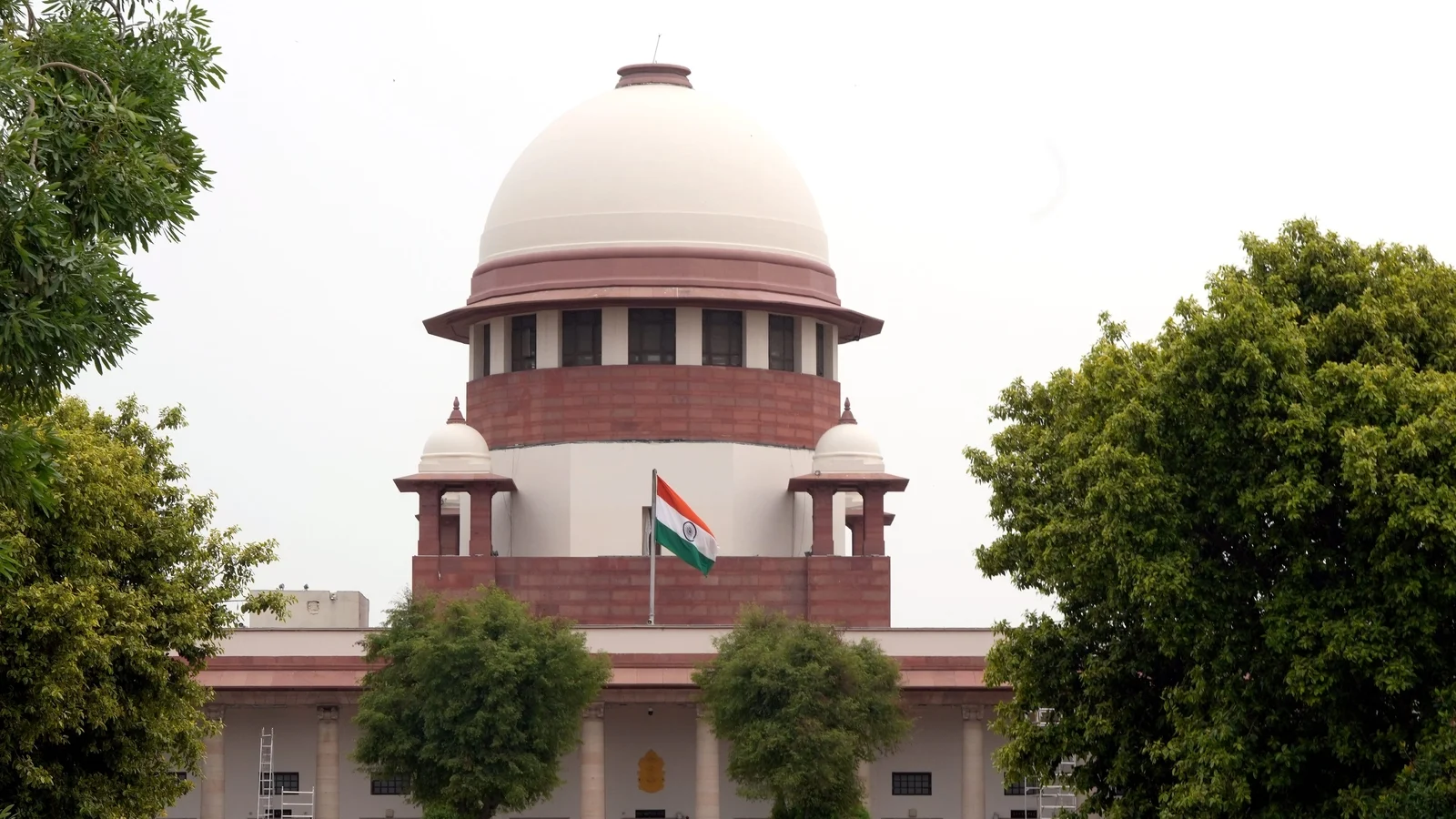Supreme Court Rebukes Telangana Government Over Illegal Tree Felling Near Hyderabad University
Hyderabad, May 15, 2025 — The Supreme Court of India on Thursday came down heavily on the Telangana government for unauthorized tree felling in the ecologically sensitive Kancha Gachibowli area near the University of Hyderabad. The apex court directed the state to restore the damaged forest land immediately or face contempt proceedings.
A bench led by Chief Justice B R Gavai and Justice Augustine George Masih expressed grave concern over the extent and timing of the deforestation. The judges questioned the state’s intent, citing satellite imagery and reports that confirmed large-scale destruction of forest land during a period when the court was on a long weekend break.
Background of the Issue
The controversy began when environmental activists and students raised alarm over widespread deforestation near the University of Hyderabad. The court took suo motu cognizance of the issue on April 3, 2025, issuing a directive for status quo and allowing only protective measures to conserve the remaining greenery. Despite this, tree cutting continued, sparking legal and public outrage.
The Forest Survey of India, using satellite images, submitted evidence to the Central Empowered Committee (CEC) confirming that approximately 60% of the 104-acre forested area had been cleared.
Supreme Court's Observations
The Chief Justice stated, “This operation appears to be strategically planned. The work started just before a long weekend. It is hard to believe this is a coincidence.” The court questioned why the state government initiated such aggressive clearing without required permissions and why such haste was shown if the intentions were legitimate.
Photos presented to the court showed dozens of bulldozers at the site, a clear indication of industrial-scale activity. “Had the purpose been genuine, work could have been scheduled during court working days under judicial oversight,” the bench noted.
Lack of Restoration Plan
During the proceedings, the amicus curiae and several senior advocates informed the court that the Telangana government had not submitted any restoration plan for the damaged land. Instead, the state continued to justify its actions, further aggravating the court’s concerns.
The court made it clear that restoration of the forest was non-negotiable and must begin immediately. If the state fails to comply, it will face contempt of court charges, a rare and serious legal rebuke.
Support for Student Whistleblowers
In a parallel development, student activists who tried to stop the deforestation were reportedly booked by the police. Advocates representing them told the court that these students had only acted in good faith to protect the environment.
While acknowledging the students' courage, the bench maintained its current focus was to address the issue of illegal deforestation and to ensure restoration of the environment. “We will address the actions against the students at a later stage,” said Justice Masih.
What the Satellite Data Shows
The Forest Survey of India’s report was central to the court’s findings. Satellite images clearly depicted the denuded landscape, marking a sharp contrast from prior vegetation records. According to the FSI:
- 60% of the forest cover over 104 acres had vanished in just a few weeks.
- Bulldozer activity was captured on multiple days.
- The cleared land was previously classified as protected green zone.
Telangana Government's Response
As of now, the Telangana government has neither issued a public apology nor presented a viable plan for reforestation. Their legal representatives maintained that the clearing was part of a “development project,” although no supporting documents or environmental clearances were shared with the court.
This stance has invited severe criticism from legal experts, environmentalists, and the general public. “Development cannot be at the cost of environment and law,” remarked environmental lawyer Ritika Sharma.
Legal and Environmental Implications
The case has ignited a broader conversation about environmental accountability and the role of judiciary in safeguarding natural resources. Legal analysts believe this could set a precedent for how courts deal with state-led deforestation in the name of development.
The bench’s sharp language and potential contempt proceedings signal that the judiciary is not willing to allow ecological violations to go unpunished.
What Happens Next?
The Supreme Court has directed the Telangana government to:
- Immediately halt any ongoing clearing work.
- Submit a comprehensive restoration and reforestation plan.
- Provide detailed explanations of permits, if any, obtained.
The court has scheduled a follow-up hearing and will continue to monitor the government’s compliance. Non-compliance could result in legal penalties and contempt action.
This case is not just about one forest near a university campus. It is about the larger environmental ethos and the duty of governments to act responsibly. As the Supreme Court stands firm, eyes across the country are watching how Telangana responds.
Stay with TheTrendingPeople.com for continuous updates on this developing story, judicial proceedings, and environmental news from across India.
Disclaimer: Inputs with Agency


